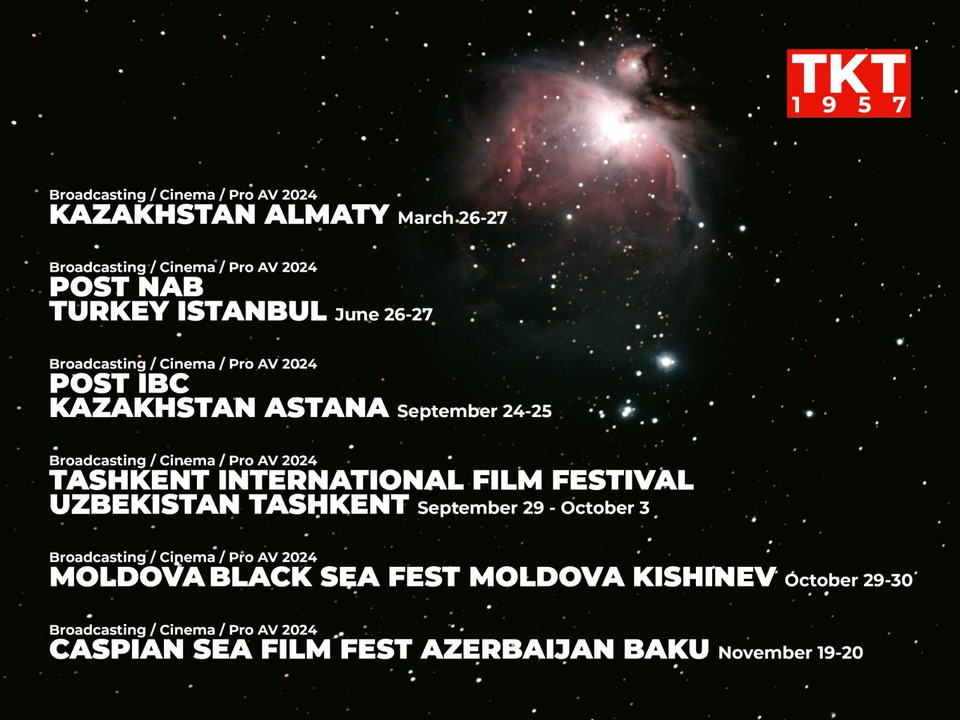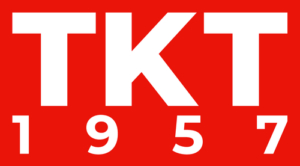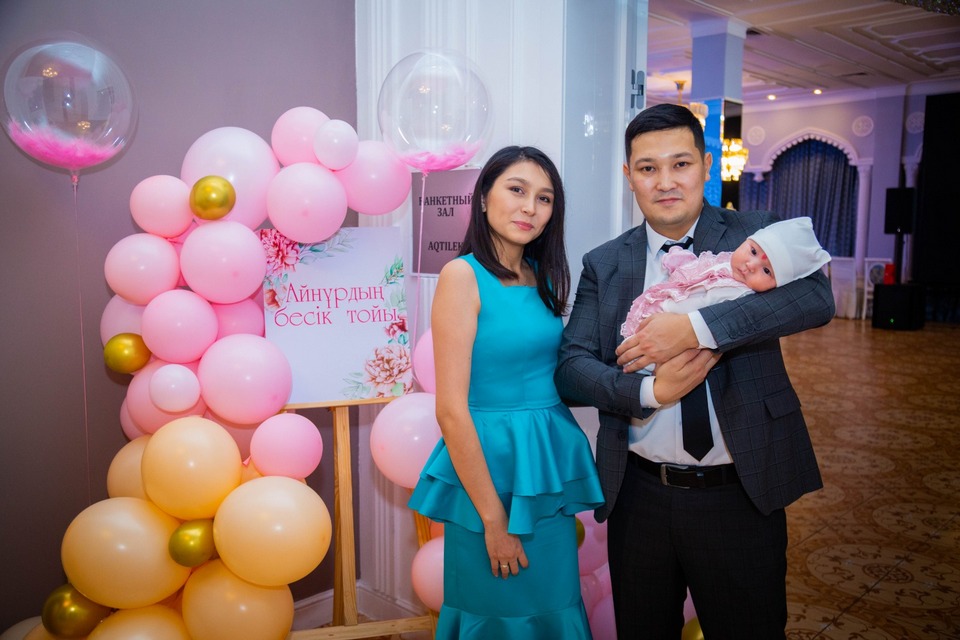Interview with Abylay Ibraiuly, Head of the Studio Equipment Department at Kazmedia Ortalygy.
– What year were you born? What did your parents do?
I was born in 1992. My parents are ordinary people. My father graduated in agriculture from Almaty; he is an agronomist. After serving in the army, he secured a job at the Yubileiny state farm, Bolshenarymsky district. Initially employed as an agronomist, he eventually rose to become the director of the state farm by the time I was born. Following the collapse of the Union, he transitioned to work in the civil service. Currently, he is retired and tends to his own farm.
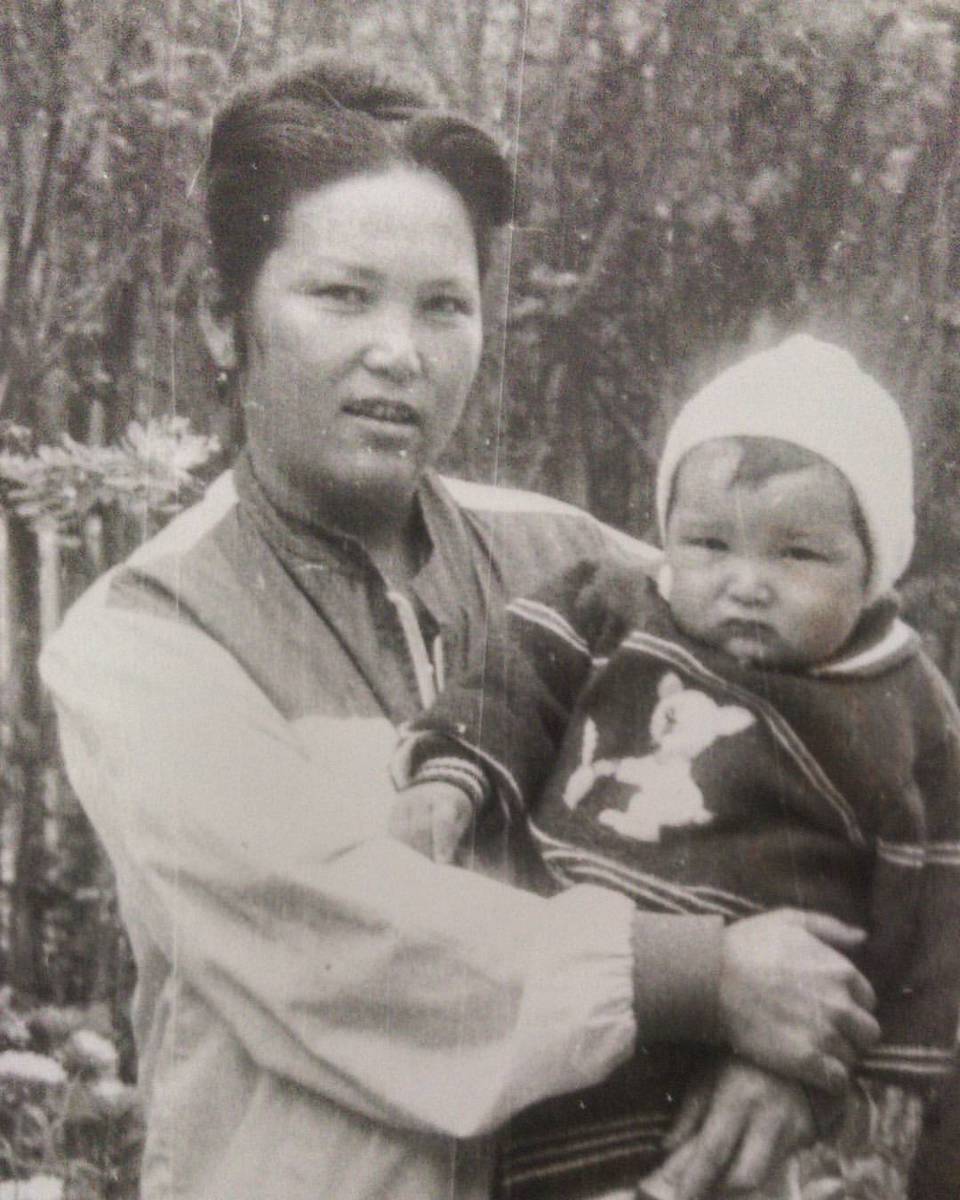
My mother graduated from East Kazakhstan Technical University, specializing in water supply.
Our family consists of three children; I am the youngest, with two older brothers. The eldest was born in 1985, and the second in 1988.
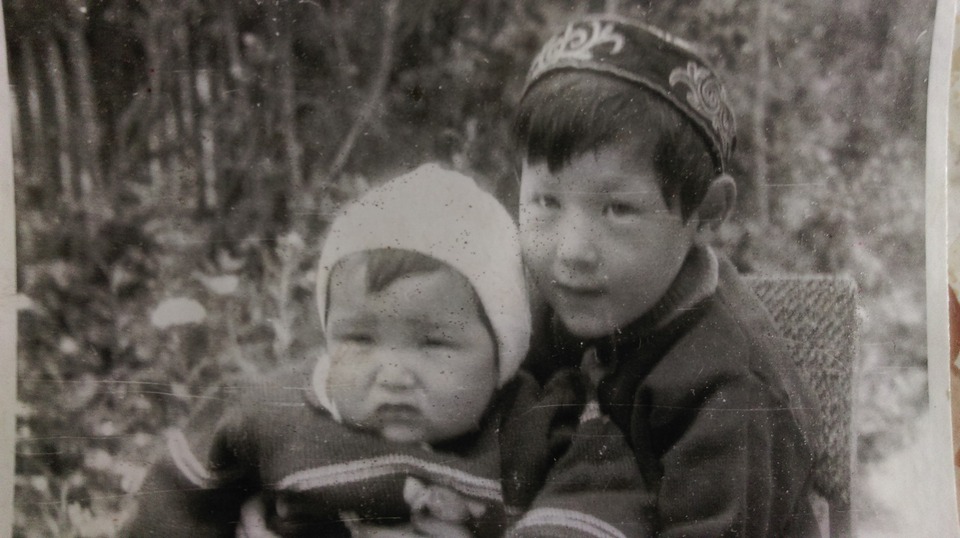
– When did you start school? What were your interests?
I began first grade in 1999. I had a natural inclination towards physics and mathematics, and a fondness for geography.
My mother always taught us. We had a large world map displaying countries and their capitals, so by the time I started school, I already knew all the capitals of the world. Teachers were amazed later by how readily we could answer all their questions.
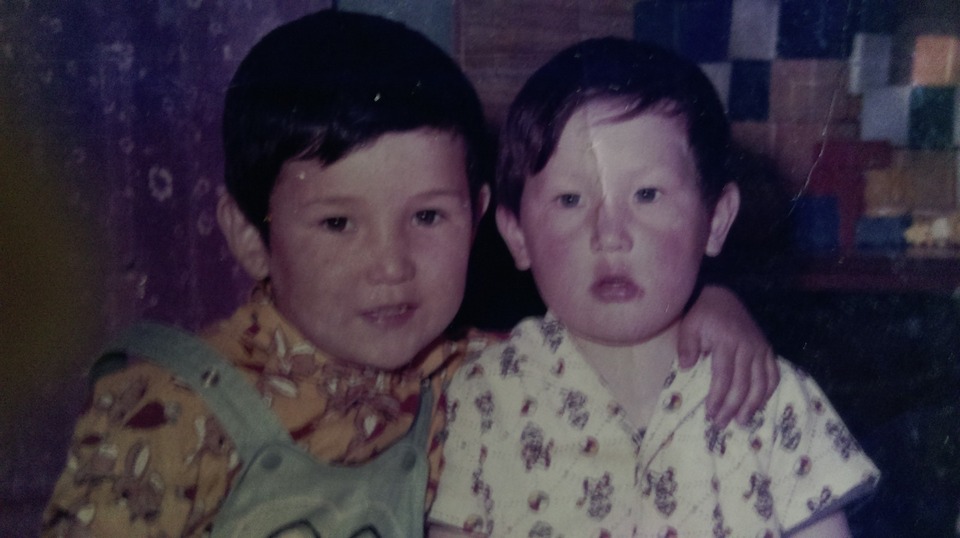
My father possessed a strong understanding of mathematics and physics, which he passed down to me. My older brother was more interested in history; he now works as a lawyer. The middle brother was more versatile and gravitated towards sports. I also followed in his footsteps by taking up boxing, although he achieved greater success: I hold a first rank in boxing, while he is a candidate master of sports.
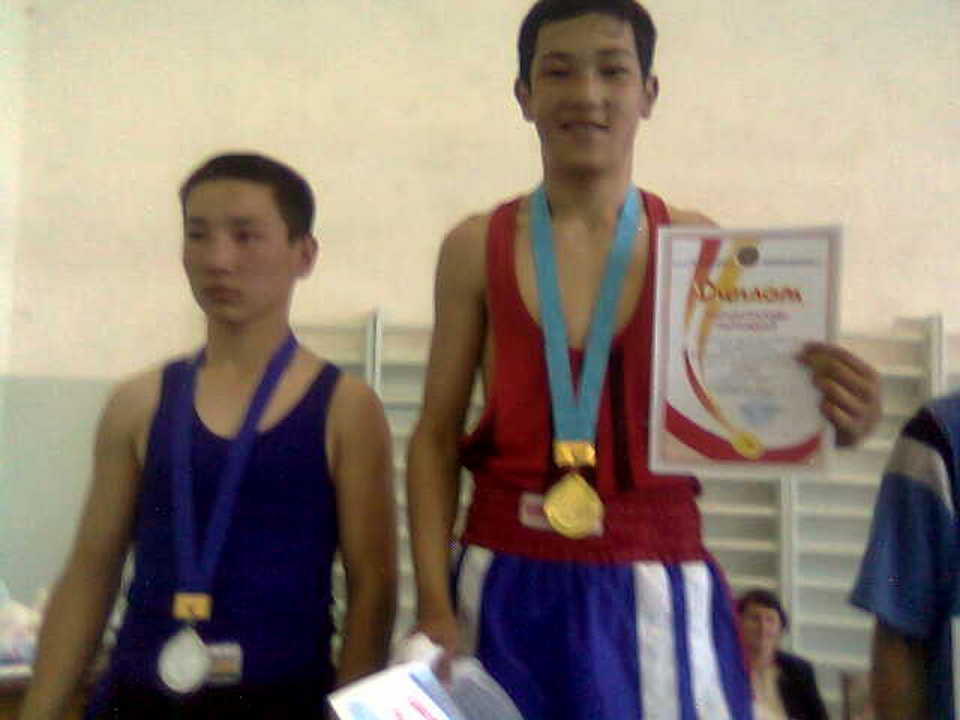
– At what age did you start boxing?
I started in second grade, and my middle brother began in sixth grade.
– Was school in the same place where you lived?
Yes, in the settlement, in the district center. We had three schools: a rural lyceum and two secondary schools—Russian and Kazakh. I attended the Kazakh secondary school named after Kabdosh Damitov. All three of us brothers studied in the Kazakh school. Although my parents mainly speak Russian, our grandparents spoke Kazakh, so they enrolled us in the Kazakh school. However, we are fluent in both languages.
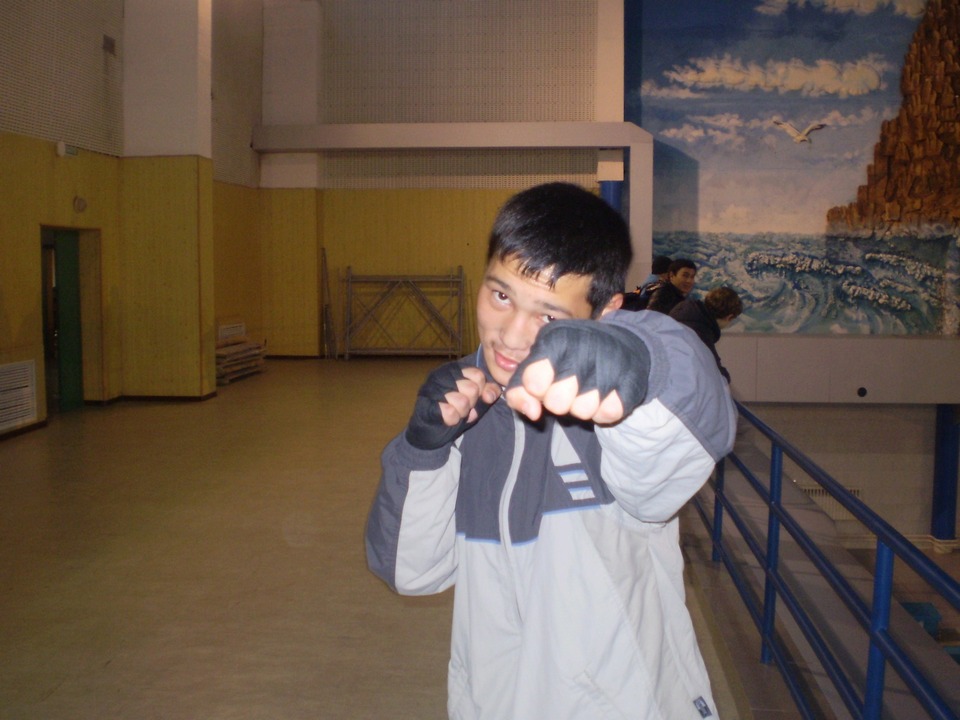
– Where did you learn the language?
At school. Also, our parents are mostly Russian speakers; my father was a director, and my mother worked in the personnel department. Currently, my father is engaged in farming, it’s his own business now; we have a peasant farm, and my middle brother helps him. My mother is with them. I am the only one in Astana pursuing a career in television.
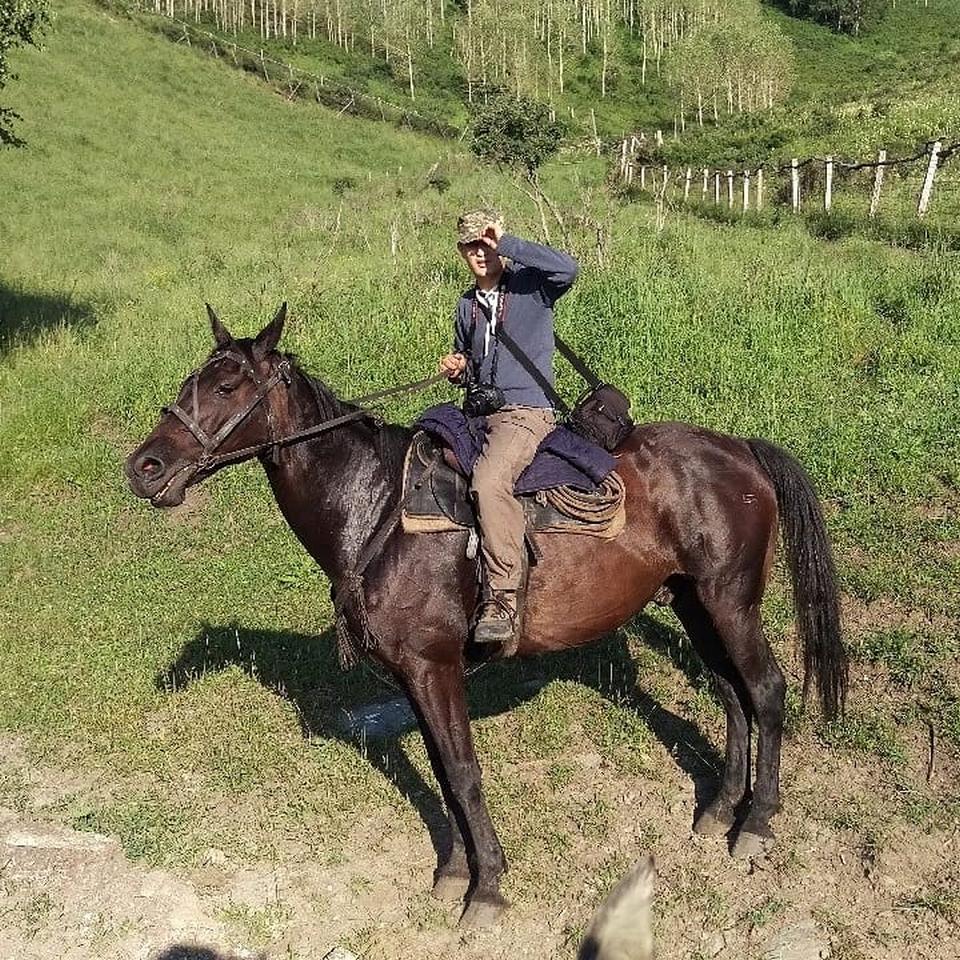
– Why didn’t your older brothers leave?
The eldest brother is in Ust-Kamenogorsk, and the middle brother always had a passion for animals. Since childhood, our father instilled in us a love for horses. We participated in Alaman Bayge horse races; the middle brother was a trainer, and he trained me. We rode the horses ourselves when we weighed less than 50 kg, but when we gained weight over 50 kg, it became difficult for the horses, so we recruited lighter boys. We taught them how to properly care for the horses and train them. It’s a generational continuity. My father taught all of us brothers, but the eldest brother wasn’t interested in riding; he simply loved horses. The middle brother always leaned towards sports, and he was the best rider. Sometimes, he would participate in 4-5 races in a day, starting from sprint distances to Alaman Bayge. And I followed in his footsteps. I also raised three hunting dogs, Kazakh greyhounds, and went hunting with them.
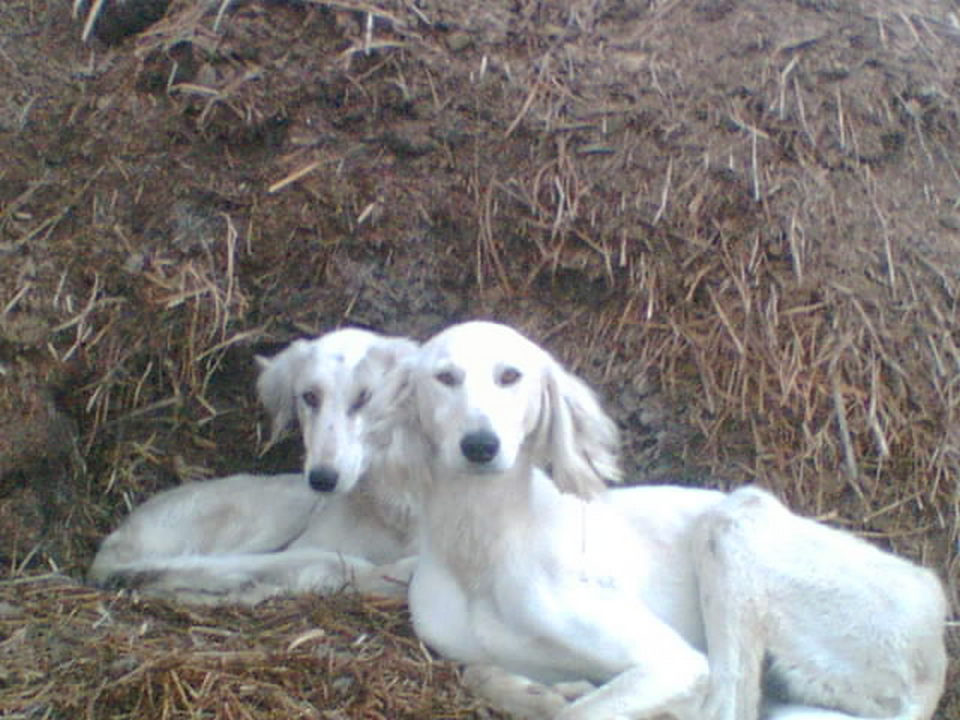
– Did you perform well in school?
I graduated from high school with honors, receiving the “Altyn Belgi” distinction. This is largely due to the dedication of our teachers; they went through the Soviet school system and treated us with care, which unfortunately isn’t as common nowadays.
– Where did you enroll after school?
At the age of 17, I enrolled at Eurasian National University in Astana upon invitation. I received a regular scholarship of 15,000, and an additional 7,000 for the “Altyn Belgi” award, which was unique to ENU.
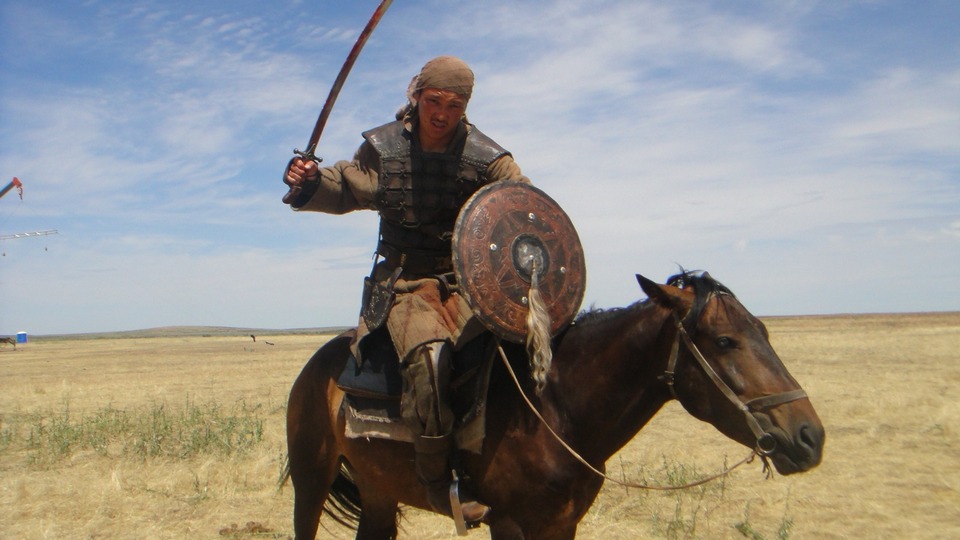
– Which faculty did you choose?
The Faculty of Physics and Technology. My specialization was in “Radiotechnics, Electronics, and Telecommunications.”
– Why did you choose this field?
I had always been drawn to television. When I was little, whenever my parents filmed videos, I always tried to get in front of the camera. I loved old VCRs. In large families, the youngest were always in charge of the remote control; you’d run around and rewind. When the first mobile phones appeared, I enjoyed exploring and configuring them.
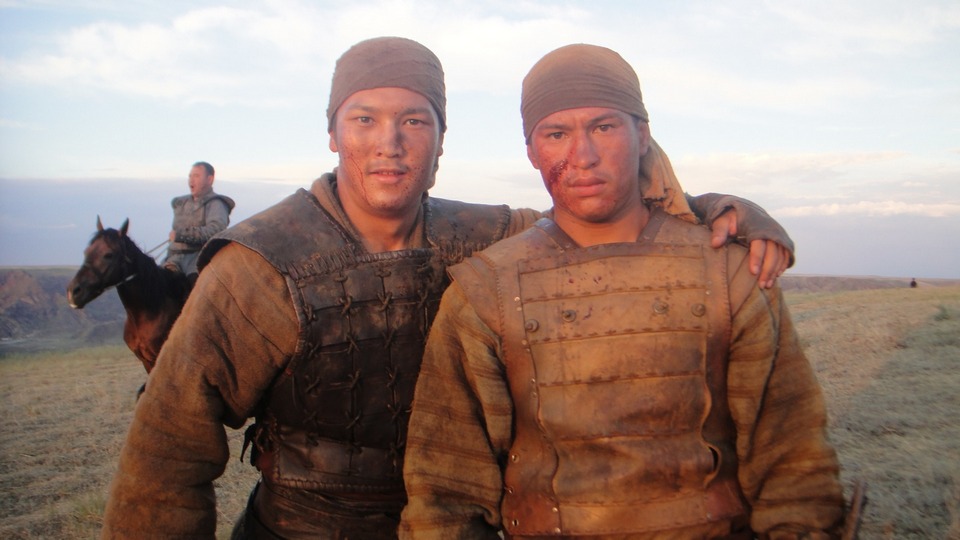
– Why did you choose a technical direction instead of journalism?
In my understanding, journalism was more about print media, and I wasn’t patient enough to sit and write long texts. But I enjoyed commentary work. My love for sports began in childhood. The satellite channel “Sport” was always on at home, and incidentally, I also adjusted the satellite dish when the wind blew it off. I watched this channel all the time. In 2018, I won a commentator contest at the local “Kazsport” channel and commented on games until 2020. Football matches and boxing are my two main sports.
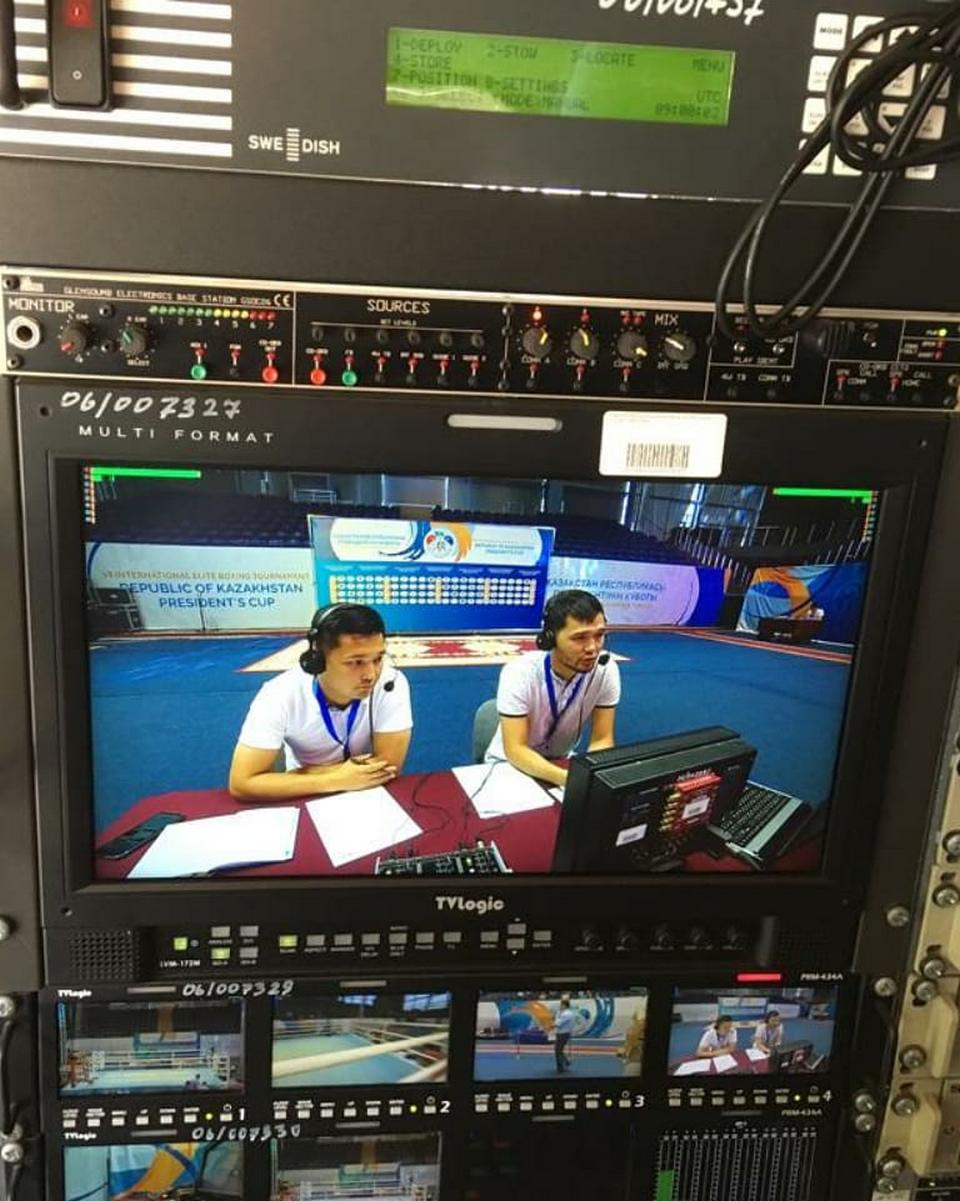
– Did you enjoy studying? Which subjects did you like?
Yes, I enjoyed it. In our group, there were 24 people, 22 of whom were gold medalists, and two were winners of international Olympiads. There was intense competition within the group. For mathematics, using the Ryabushko textbook, we were assigned to solve 5 pages, but we solved 6-7 pages, competing to see who could solve more. In terms of specialty introduction, we had strong professors who immersed us in our field of study.
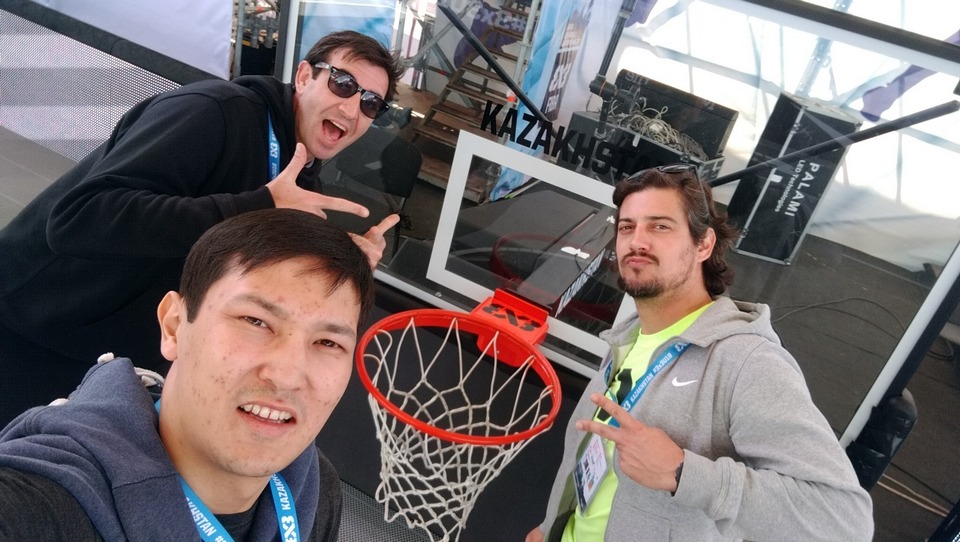
– When did you first appear on television?
I first appeared on television in 2010, in a movie. When I arrived in Astana, there was a large casting call for “Zhauzhrek Myn Bala” (translated as “The Braves”), a film about a large army of a thousand children. I auditioned for one of the episodic roles. I came from the village, with a tan, and the main criterion for selection was the ability to ride a horse. However, I learned to walk later than I learned to ride a horse; I fell off a horse for the first time at the age of three. Overall, the filming lasted for 30 days, from April 2011 to August 2011, and the premiere took place in May 2012.
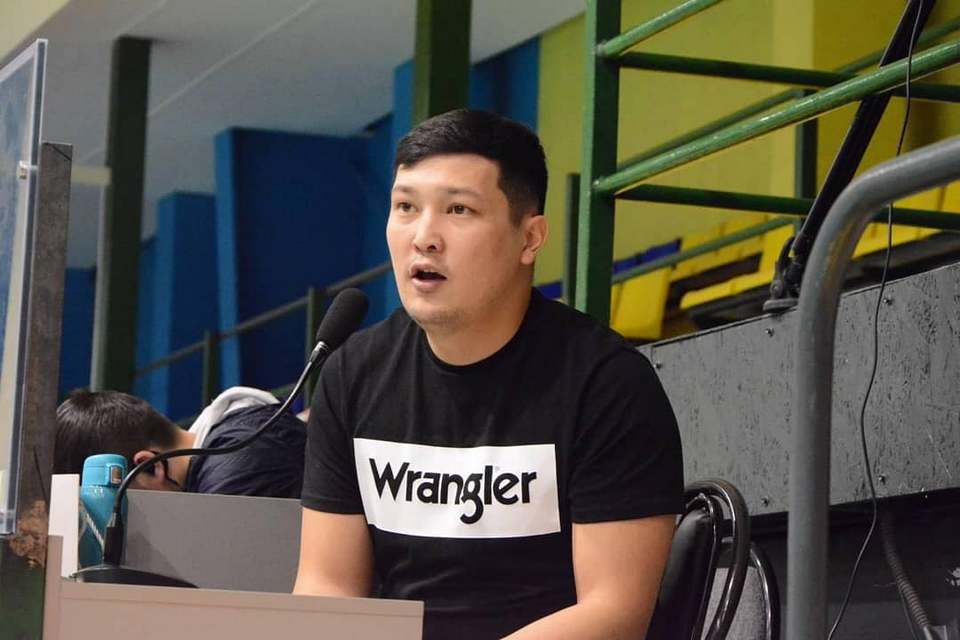
– How did your family experience your moment of stardom?
It was normal; it wasn’t a significant role. I thought of pursuing a career in cinema further and took acting courses. Then we started shooting ourselves. Alongside university studies, we were given official letters from the director of “Kazakhfilm,” which I submitted to the dean’s office, allowing me to be exempted from classes, but it didn’t go unnoticed. I failed my first exam in specialty introduction. I missed a lot, and I received the only C in my diploma for the introduction to the specialty. Well, I lost my scholarship at that time. However, I managed to restore it the following year. The average grade in my diploma was 3.65 out of a maximum of 4.
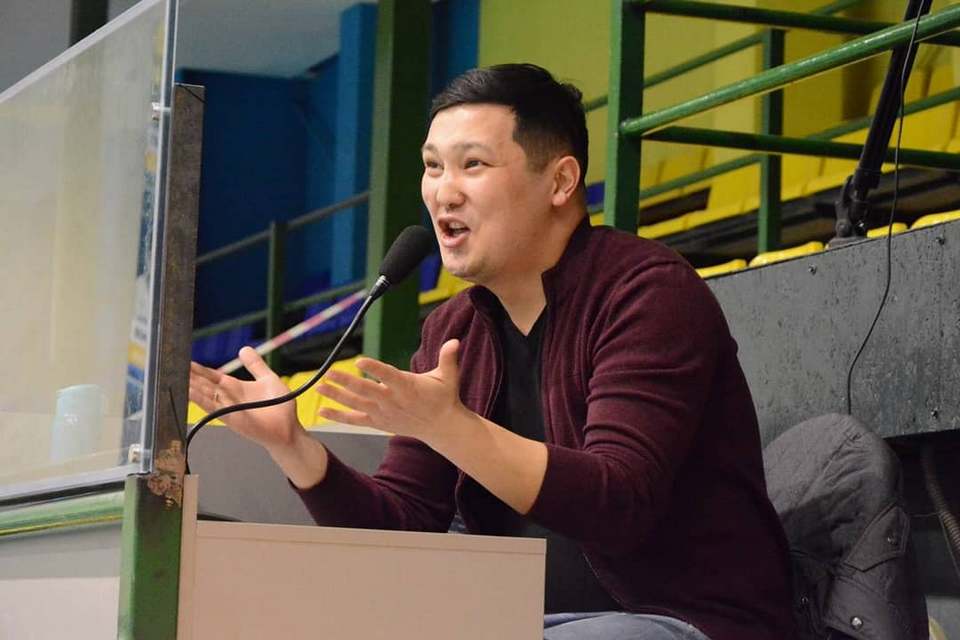
– How did you end up on television?
When my involvement in films began, I met producers from the “Seventh Channel” and helped with extras for various shows. On my 3rd or 4th year, I got a job at “Kazakhtelecom” – laying fiber optic cables with distribution boxes from the entrance to the apartments (the last mile), providing internet, TV, and telephony, all using the GPON system.
– Why did you leave there afterwards?
Television is a creative process after all. What I saw on the sets intrigued me more. That’s why I became a video engineer in the outside broadcasting van.
In 2014, after graduating from university, I went home for the entire summer to help my father develop the farm. Before leaving, I sent out resumes. I received a call from the “Kazakhstan” channel – they needed young people, those who were breaking through. It was expected to be tough work, as we had to climb to the third tier of the stadium with a long-focus boxing lens.
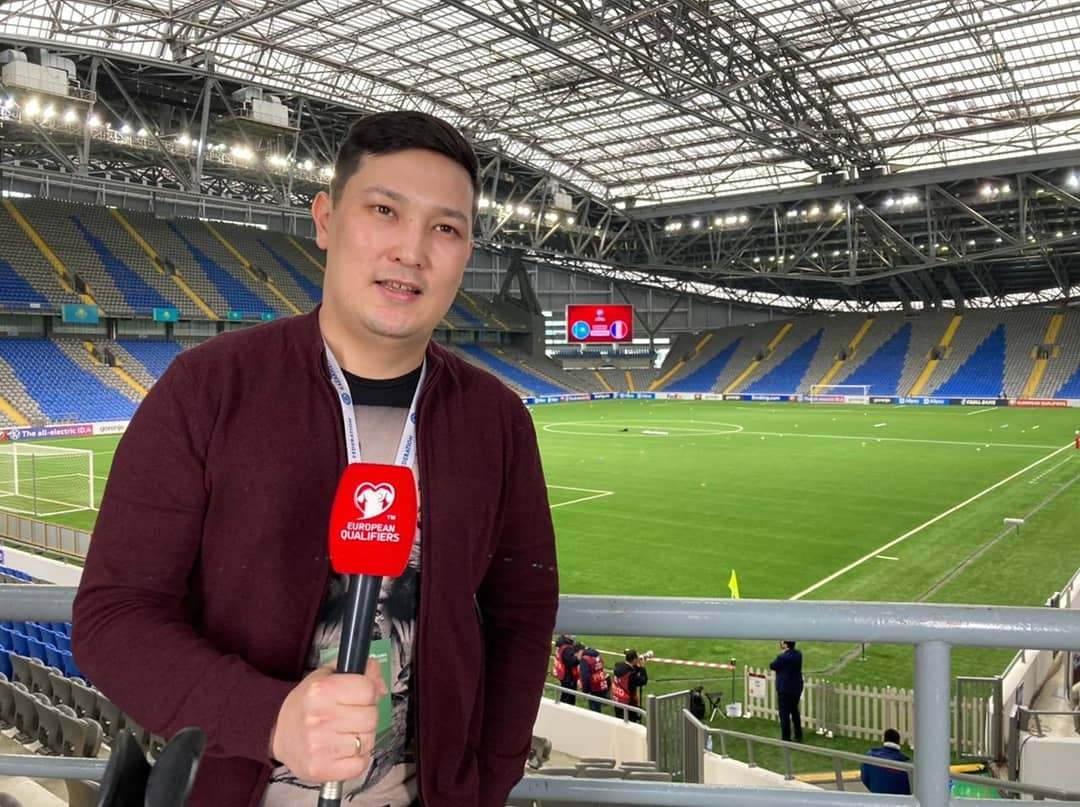
– Do you remember your first assignment?
Yes, my first assignment was at the Central Concert Hall “Kazakhstan” for Aygul Imanbayeva’s concert. It was on December 1st, and I had just started on November 27th, so it was my baptism by fire.
At that time, the outside broadcasting van was equipped with six cameras, and we set up two long-focus lenses. The first day is forever etched in my memory, as we were setting up everything, stretching cables, connecting switches. I was being taught by one of the leads on the video truck: “Don’t touch this, I’ll do it myself,” and you stand there thinking, “Maybe I should help,” but he insists, “Don’t hover over me, I’ll do it.” The eagerness was high back then.
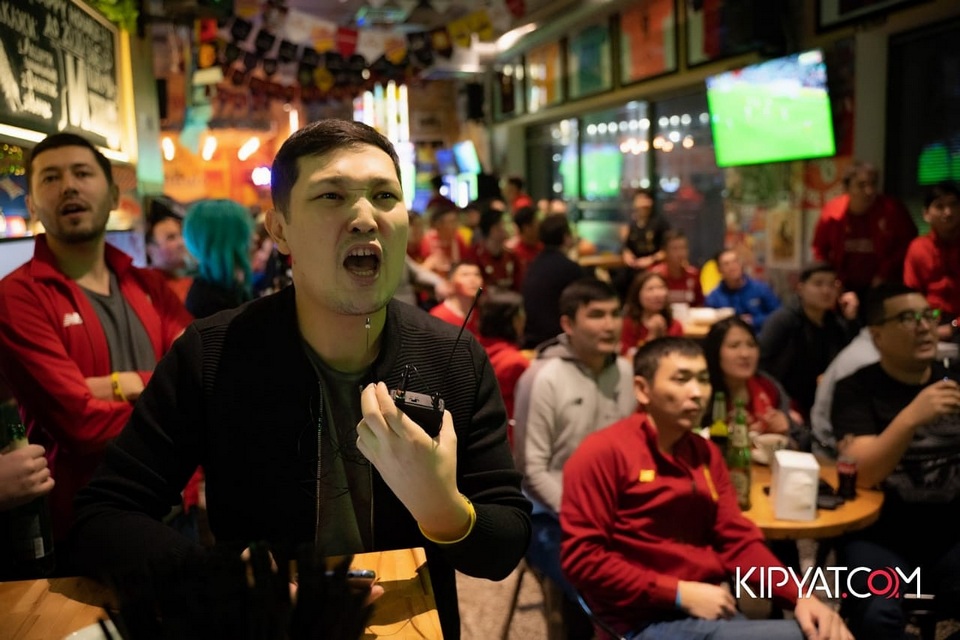
– How did your career progress at the channel?
I also worked as a commentator on the side and received an award from the minister. We had a telebridge with the president in December, and there was an emergency situation where I ended up alone handling two OB vans, totaling 14 cameras. One van was raising the signal with four cameras inside, paired with the main outside broadcasting van, which had ten cameras.
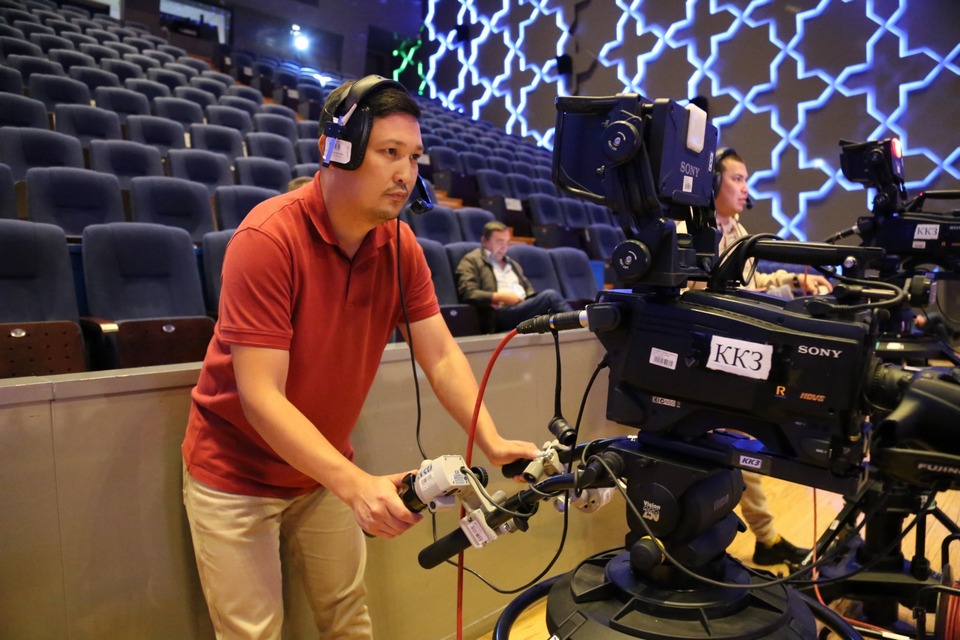
– When did you decide to try yourself as a commentator? How did it happen?
Well, you see, it was a childhood dream of mine, and when they announced the casting, I just went to check it out. I wanted to commentate only on boxing, as I was involved in it, but at the casting, there was no one who wanted to commentate on this sport; everyone came for football. Then the main administrator approached and said to pair up. I didn’t have a partner, so I was left alone, without anyone to pair with. They assigned me a guy, and I had to go and commentate on football.
– How did you juggle it all?
We had up to four broadcasts a week. European cups mid-week. I had reached the semifinals of the Europa League, and I covered championships on weekends. I worked in the OB van – a shift every two days, and simultaneously we were shooting movies.
In 2016, we shot a feature film called “I Love You, Akerke!” I served as an executive producer and actor, but I was more involved in the technical side: framing, equipment search; I supervised everything, ensuring quality. At that time, the film was one of the few that paid off in cinemas.
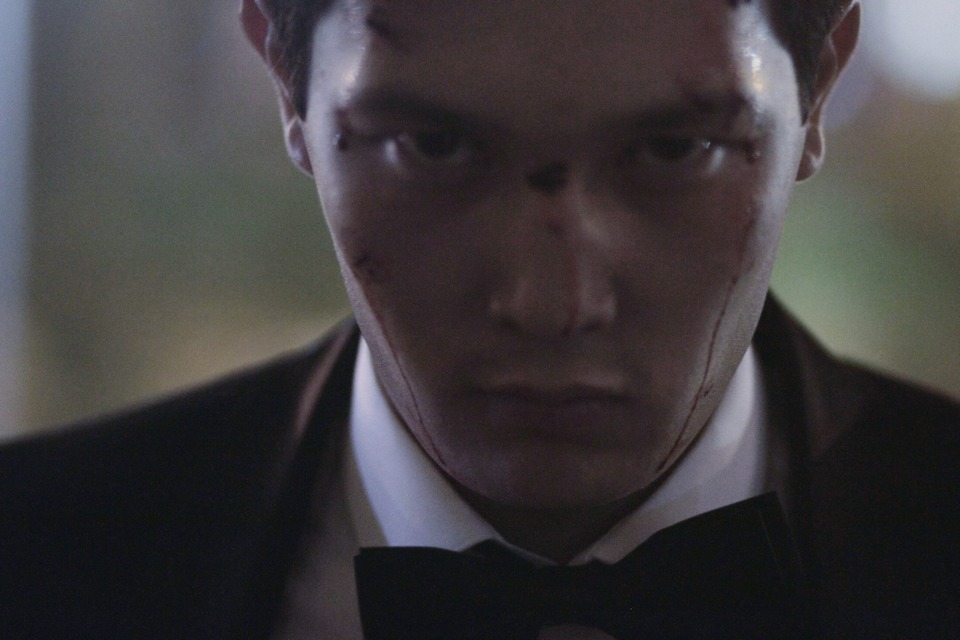
– Were you invited or were you a co-founder?
Initially, I was invited, but later on, we began investing our own money because we saw potential in the film. It was a story lived in parallel. One of my colleagues had a friend who died of leukemia. The film was based on real events, the girl was my age.
– What other experiences did you have in cinema?
We shot a film about a zombie apocalypse as students.
– Who financed it?
Two of our directors, Meirim and Nazia. They approached the Astana city administration, and they allocated two million. The University of Arts also supported us; we shot at their premises, and they provided cameras and pavilions for free. The university rector, the renowned violinist Ayman Musokhodzhayeva, invested in the development. They converted classrooms into studios. We shot on ARRI Alexa and the newly released Blackmagic 4K cameras. The scenes in the university were filmed on Alexa, which wasn’t taken out of the university, while outdoor scenes were shot on Blackmagic URSA 4K or Sony Alpha cameras.
— Why did you decide to end your career as a commentator?
Officially, I didn’t end it; if I’m invited, I come. In February 2020, I moved to “Kazmedia Ortalygy” as the head of the OB van department, where I have a five-day work week, so I could only commentate on weekend broadcasts.
— Why did you decide to make the switch?
I had finished my career at the OB van. Other departments didn’t interest me because after the OB van, engineers don’t really progress. It’s truly a school of life – you go through major projects that toughen you up, so when you come to the office or studio, it feels like nothing is happening here, everything is routine, you don’t grow. For example, we covered the World Boxing Championships in 2016 in Astana, and the FIBA 3×3 World Championships in 2018.
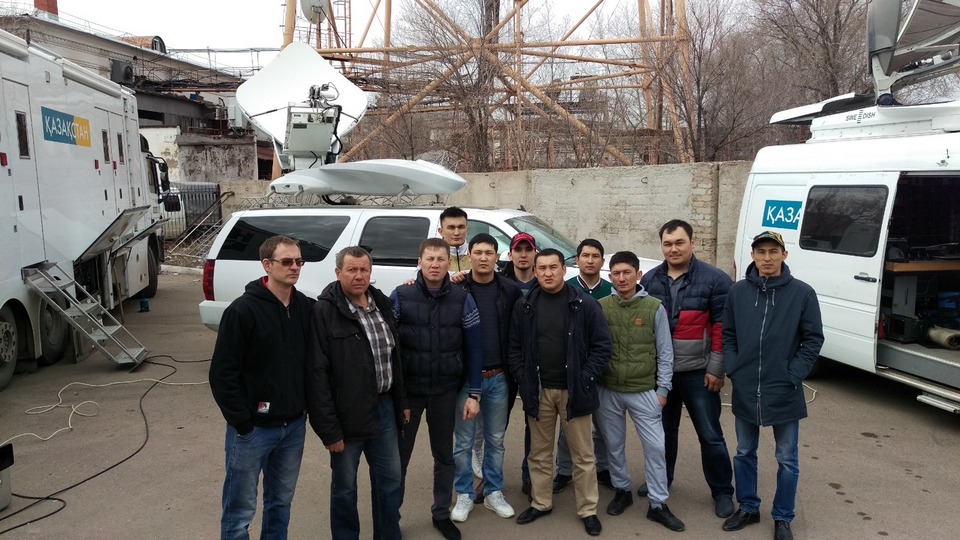
2018 was one of the most memorable years in my career. In 2017, there was the Winter Universiade, and we were on a four-month assignment in Almaty. But the 3×3 World Championships stood out more; even though it was smaller in scale, the decisions made by the Portuguese side were eye-opening for me. At that time, the scheme was simple: you come to the OB van, connect, shoot, and that’s it. But the Portuguese directors brought additional cameras, connected everything, did the routing, and created graphics. I improved my English by communicating with them. I adopted their decisions on camera balance and settings. At that time, we balanced cameras by placing a white sheet of paper, zooming in on it for full defocus and auto balance, zooming out, comparing cameras, adjusting any deviations, and that was it. They, however, didn’t use a white sheet; they used a black-gray-white card and balanced according to that, resulting in much better balance than what we did. Once set up, you don’t need to readjust; you zoom out, and all cameras are identical.
— What about during the broadcast?
There’s nothing extra; they really have a team. These guys shoot world championships all over the globe; they understand each other with just a glance or a word. One calls out, and the other has already acted. Their directorial school, how they see and position frames, was a big revelation and innovation for me.
— What is your current position?
I’ve recently transitioned to the position of the head of the Studio Equipment Department. Previously, there was the OB van department, which I merged with the special lighting department. Previously, they were separate, providing lighting for each studio. The staff included a senior lighting technician, a lead lighting technician, and an engineering technician responsible for lift mechanisms, dealing with winches and trusses. I combined these two departments and created a new, larger one, consisting of 40 people including myself. This is the Studio Equipment Department. Additionally, from the OB van department, we received a Mobile Television Station (MTS), which came from Almaty, formerly owned by the television channel “KTK.”
— Why did it end up with you?
It was under their trust management because it belongs to our ministry. The ministry decided to transfer it to “Kazmedia.” Since they have two MTS units, one ended up at the “Eurasia” TV channel. They are identical; they were taken for the Winter Asian Games in 2011. Two MTS units were brought from South Africa in 2011, where the African Cup of Nations and the World Cup were held. These MTS units were used for two major events, and then they were idle until 2014 when they were handed over to television channels. One was given to “,” and the other to “KTK.”
In 2021, the MTS unit came to us. The plan was to have one large MTS unit in Almaty and one in Astana. Then we started operating it; the initial period coincided with the pandemic, and I spent my entire probationary period as the head remotely.
— How did you manage?
I worked for the first month, and then from March, we were sent to remote work. March and April were remote, and in May, we were called back. During the pandemic, some of us worked shifts while others were on standby. The bosses were sent to work remotely, and the rest were idle. It was a fun time; we also monitored, advised, and during this period, I established contact with old employees. They were forced to call me as their boss for consultations. During this time, I gained their trust.
When everyone returned, we conducted an inventory. Everything was scattered in all the studios; if something was rearranged during one shift, they didn’t inform the next. I personally went with each subordinate, found names according to accounting deductions, some didn’t match, and I sat and googled. But we got everything sorted out; even the accountant praised us.
— When did the department consolidation take place?
The consolidation of the department happened on April 1, 2022. Initially, the lighting team thought it was a joke. Their department used to be larger, but their head left for private business, and I took his place. Since I had previous experience working in the film industry as a camera operator and gaffer, this path was familiar to me. The team supported the decision, and work began immediately.
Since 2022, I’ve been able to delegate the main tasks to leading specialists and focus more on operating the MTS. I needed to study it thoroughly and understand how it works. It took a lot of time, and later we rented out the MTS, but I still worked with it. Whenever I had to hand it over or make an inventory, I was there. I went out with it, observed how other teams worked, and mostly called in the old team from Almaty. I learned from my colleagues’ experience. In 2022, we managed the visit of the Pope, one of the biggest events for Central Asian Catholics. I received my second commendation from the minister for organizing this forum.
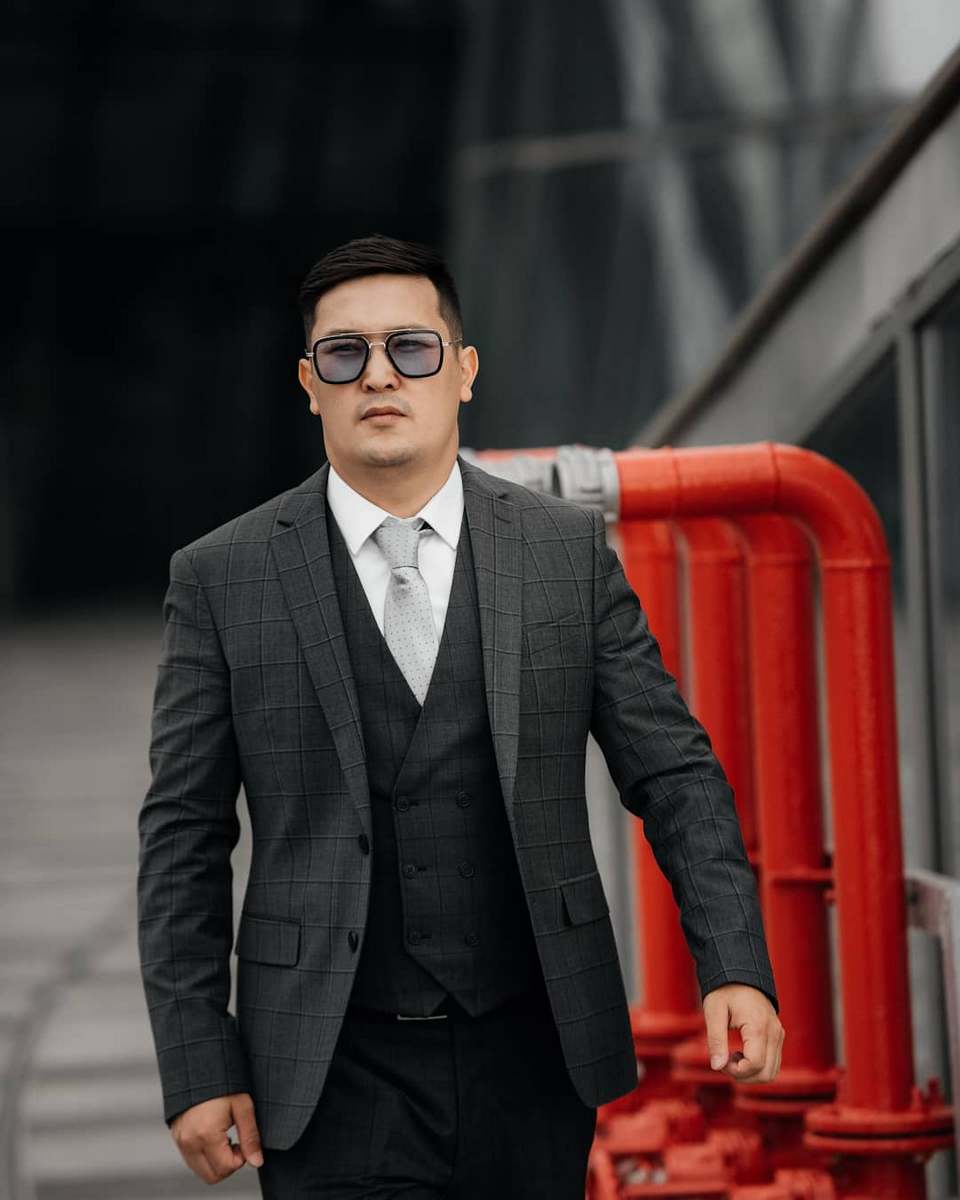
— What do you consider your main achievement in your professional career?
Organizing major events like the visit of the Pope or live broadcasts with the president. It was a significant effort, and I found it very interesting.
— Let’s talk about life outside of work. When and where did you meet your wife?
We met at a cat café, not on television. I’ve always loved cats since birth. My cat lived for 14 years and passed away in 2022 due to old age. She always felt when I was coming home; my mother said she could tell by the cat when I was approaching.
— How did you end up there?
In 2017, we filmed the Winter Universiade in Almaty and then came to Astana for the preparations for Expo-2017. All summer, we filmed using the MTS. During the day, there were cultural events on a small stage. Each country introduced its culture every day. In the evenings, there were big events outdoors. We filmed both types of concerts. Between them, there were two to three hours, so I explored nearby locations and found a cat café during one of these breaks. I became a regular customer there, even had my lunch there, and got acquainted with the owners.
— How did the meeting with your wife happen?
She was supposed to meet a friend who didn’t show up, and that’s how we met. I gave her a ride home, and our communication started from there. It was on April 12, 2018.
— When was your daughter born, and where did you live?
In 2020, I bought a three-bedroom apartment. I got married in 2020, and we moved in January. Our wedding was in June, during the pandemic, so there was no big celebration, only close family members. We held it at our home in two separate sides. Our daughter was born on September 12, 2021.
— Who helped with your daughter?
Our parents helped. First, my mother came, then after her shift, her mother came. Our second daughter was born on January 24, 2024. Our eldest daughter takes care of her and calls herself the super nanny!
